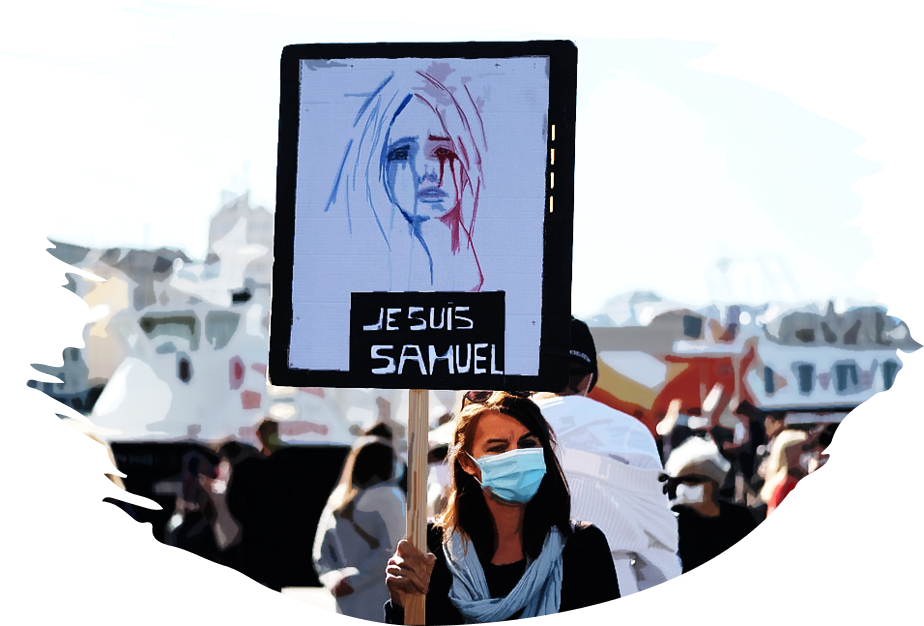
Note: The following essay was originally written in October following the horrific murder of Samuel Paty by a radical Islamist. This essay has undergone a number of revisions since its initial draft. What you now read is the finalised version completed in mid November. The title of the essay takes inspiration from Agnes Poirier’s, ‘Vive la laïcité!‘
There are two essays on Medium based on this original essay that can be found here and here.
The beheading of Samuel is an act of terror aimed at destroying the values of free society in France. The attack strikes at the nation’s integral values of liberty, equality, and fraternity (Liberté, Egalité, Fraternité). The imposition of a religious political project limits freedom of expression and free thought–making even cartoons of an Islamic figure punishable by death. The values of free society must be reaffirmed continuously not only in France but abroad as well.
A teacher’s dedication to educating the youth left a wife without a husband and a son without a father. In the late afternoon hours of October 16th, a Chechen-born radical Islamist armed with a knife decapitated Samuel Paty outside the gates of Collège Bois-d’Aulne. The catalyst for this act of violence? Cartoons that Paty showed students in a class on free expression depicting the Islamic figure, Muhammad. Paty’s purpose for showing such cartoons in class was to educate students through illustration about the importance of freedom of speech, satire and secularism in French society.
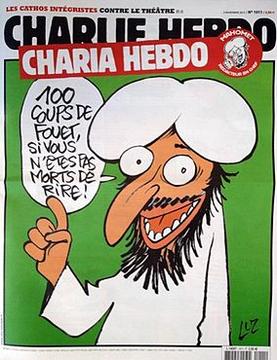
Source: Columbia Journalism Review
The Freedom of Speech and Europe’s Cartoon Affairs
The Declaration of the Rights of Man and of the Citizen (1789) article 11 articulates freedom of speech in the following way:
The free communication of ideas and of opinions is one of the most precious rights of man. Any citizen may therefore speak, write and publish freely, except what is tantamount to the abuse of this liberty in the cases determined by Law.
While some people might argue that Samuel aimed to incite anger by “offending” the sensibilities of the Muslim community by showing a “blasphemous” depiction of Muhammad, I ask how this–even if true–justifies violence or death? Samuel did not force students to attend the classes when the cartoons were displayed. He gave the opportunity for students to leave the class before showing the cartoons. Abdoullakh Abouyedovich Anzorov–the Chechen born radical Islamist who committed the murder–did not even attend the classes that Samuel held.
The murder of Samuel Paty is not the first case in Europe involving violent reprisals for depictions of Muhammad. A Danish cartoonist named Kurt Westergaard sent a caricature of Muhammad with a bomb for a turban to satirical magazine Jyllands-Posten in September of 2005 for publication at Jyllands-Posten that month. For daring to draw the Islamic figure, he was sent death threats.
Flemming Rose–cultural editor at Jyllands-Posten and responsible for organising the publication of the cartoons–wrote a lengthy Washington Post article, “Why I Published Those Cartoons” (2006) months later about the reasons for publishing:
We have a tradition of satire when dealing with the royal family and other public figures, and that was reflected in the cartoons. The cartoonists treated Islam the same way they treat Christianity, Buddhism, Hinduism and other religions. And by treating Muslims in Denmark as equals they made a point: We are integrating you into the Danish tradition of satire because you are part of our society, not strangers. The cartoons are including, rather than excluding, Muslims.
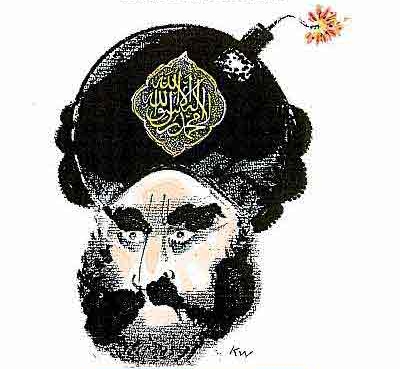
Source: aina.org
The rationale provided by Rose for publishing those cartoons is similar to the rationale given by the cartoonists of Charlie Hebdo nearly ten years later.
The far-left magazine is known in France for its satirical cartoons that mock politicians, religions, cultural icons and celebrities. In January of 2015, armed radical Islamists of Al-Qaeda in the Arabian Peninsula attacked the offices of Charlie Hebdo in Paris. They killed twelve people including cartoonist Stéphane Charbonnier (Charb) for publishing cartoons of Muhammad. As with Samuel Paty’s killer, the Charlie Hebdo murderers believed that what they were doing was avenging the prophet for “blasphemous” and “humiliating” acts.
French Secularism vs Radical Islamism
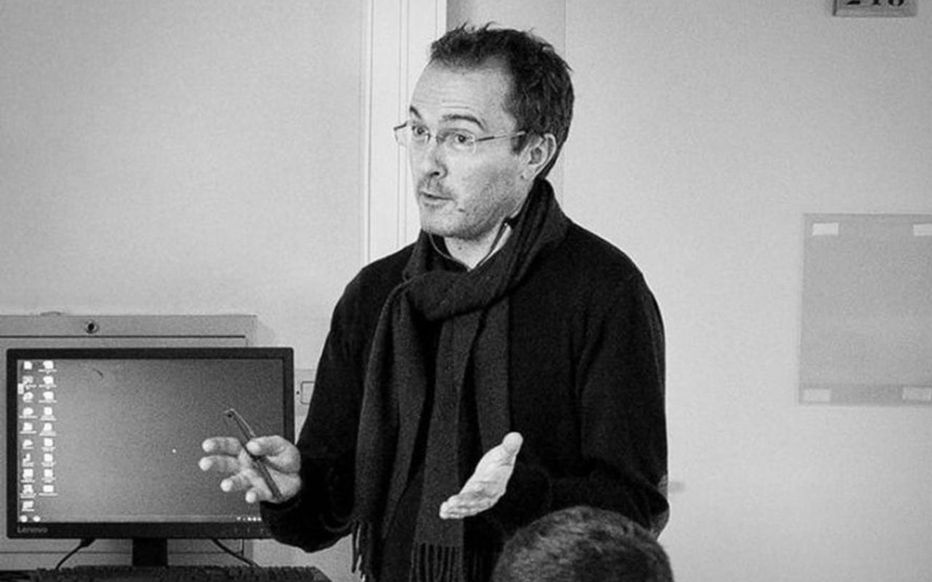
Source: Observatoireturquie.fr
Secularism–laïcité–is an integral part of the Republic that is protected by article 1 of the Constitution and by The Law of 1905. Article 2 of The Law of 1905 guarantees that, “The Republic does not recognize, remunerate or subsidize any religion.” This law originates from the days when clerical rule in France under the Catholic Church dominated public affairs. From this law came forth an understanding that the Republic would endeavour to not involve itself in the matters of private worship.
Androv attached a note to the severed head of Samuel Paty before being shot by police:
In the name of Allah, the most gracious, the most merciful, … to [French President Emmanuel Macron] leader of the infidels, I executed one of your hellhounds who dared to belittle Muhammad, calm his fellow human beings before a harsh punishment is inflicted on you.
Every believer of liberty, equality and fraternity is the target of this attack. Every non-Muslim and Muslim that believes in free society is a target for radical Islamists.
These extremists are against rights that ensure women are able to seek an education, have bodily autonomy and decide their own destiny. They are against LGBT people being able to love freely and openly. Extremists are against everything that makes free society, secularism and democracy possible.
A concerted effort to combat radical Islamism in all its forms is integral to the continued existence of free society. Rallies in solidarity with Samuel Paty shows a strong sense of national identity within France. Citizens hold up images of Samuel Paty with words such as, “Je suis prof.” (I am a teacher) and “non a la barbarie” (no to barbarism) that are defiant in the face of terror. Charlie Hebdo cartoons of Muhammad are being projected onto buildings such as hotels in Toulouse and Montpellier as part of a national tribute. The message of solidarity is clear: France will not bow to fear.
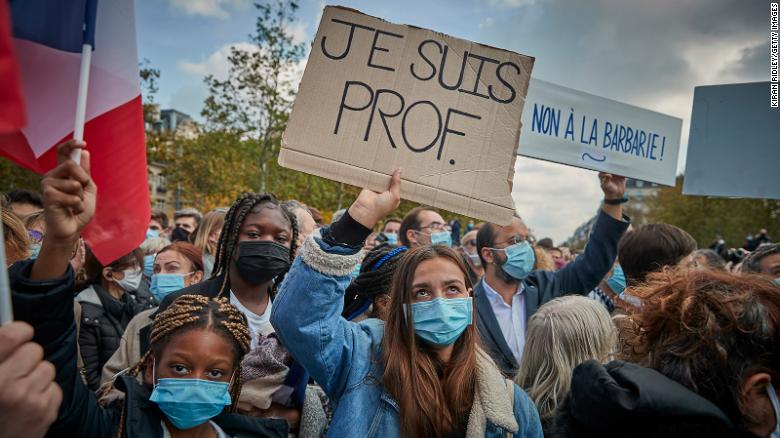
Source: CNN
President of the Republic Emmanuel Macron reaffirmed this message in a speech in memorial to Samuel Paty:
Samuel Paty became the face of the Republic, of our determination to disrupt terrorists, to curtail Islamists, to live as a community of free citizens in our country; he became the face of our determination to understand, to learn, to continue to teach, to be free, because we will continue to do so, sir.
We will defend the freedom that you taught so well, and we will strongly proclaim the concept of laïcité [secularism]. We will not disavow the cartoons, the drawings, even if others recoil. We will provide all the opportunities that the Republic owes all its young people, without any discrimination.
Macron’s firm commitment to secularism in the face of rising radical Islamism in France is admirable. Radical Islamists are attacking the nation. The values of the Republic must be reaffirmed and protected. This is not the time for capitulation or weakness. People who believe in secularism must resist the tyranny of those who desire theocratic governance. The Republic must be defended against enemies that seek to destroy it.
President Macron already is implementing an approach that seeks to root out radical Islamism in France. Macron announced this plan in early October after consultation with intellectuals, Islamic theologians and security professionals. This plan involves tightening laws against radical imams that exploit Muslims in the Islamic community. There are estimated to be over five million Muslims living in France (8.8% of France’s total population according to a Pew Research Center report from 2017)–one of Europe’s largest Islamic communities. The majority of these Muslims are law abiding citizens that pose no threat to the state. However, there is radicalisation occurring in a subsect of this community.
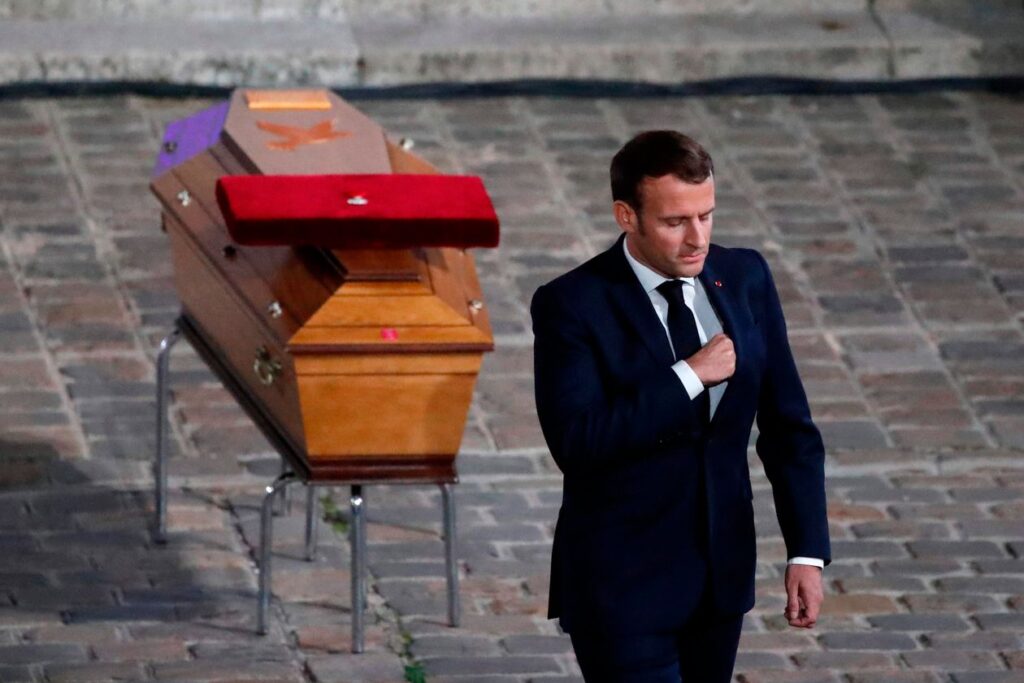
Source: Washington Post
Reactionary Forces
Reactionary forces are already out in full force in response to France’s reaffirmation of secularism. Turkish president Recep Tayyip Erdogan decried Macron’s statement in a speech before parliament:
France and Europe, in general, do not deserve the vicious, provocative, hateful policies of (French President Emmanuel) Macron and those who follow the same mentality…
President Hassan Rouhani of Iran took offence at the cartoons:
The West should understand that… insulting the prophet is insulting all Muslims, all prophets, all human values, and trampling ethics.
Well Prime Minister of Malaysia Mahathir Mohamad stated:
The killing is not an act that as a Muslim I would approve. But while I believe in the freedom of expression, I do not think it includes insulting other people. You cannot go up to a man and curse him simply because you believe in freedom of speech.
Before going on to say that Muslims, “have a right to kill millions of French people.”
These are the leaders of closed societies that are lecturing an open society on human values.
Within Turkey there are thousands of people that have been arrested on trumped up charges of terrorism including many journalists. Turkish citizens continue to face a clamp down on their human rights with hateful policies aimed at cementing Erdogan’s power. In the Islamic Republic of Iran there does not even exist any semblance of free expression against the Ayatollah, with thousands risking arrests, torture and even death for daring to express themselves. Both regimes are sponsors of radical Islamist terror that violates human decency, especially against peaceful Muslims that are victims of this terror. These leaders simply cannot talk on this matter at all.
There is always a denial of free society wherever radical Islamism becomes entrenched. Combatting this extremism is imperative for any chance of free society to flourish.
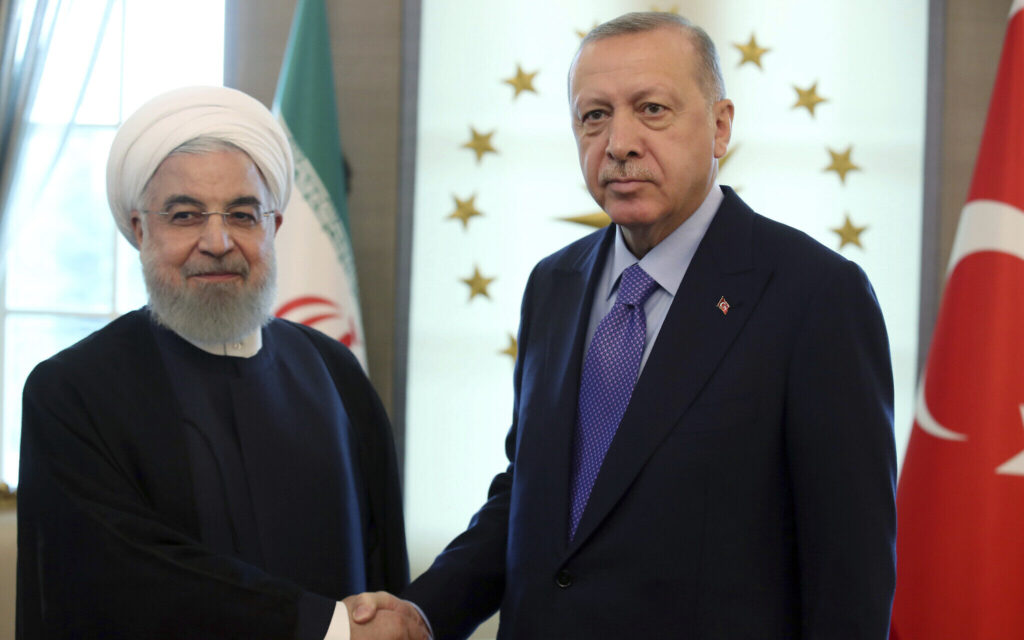
Source: Times of Israel
Across the Atlantic US news editorials write articles that attempt to shift blame for radical islamist terror onto French secularism. There is a bigotry of lower expectations with this type of argument that plays into narratives pushed by both anti-Muslim bigots and radical islamists.
On one side of the coin, the argument implies that French Muslims have a higher propensity for violence and that because of this Muslims need to be warded off in some way. On the other side of the coin, censoring cartoons of Muhammad plays into radical Islamists hands by giving into self-censorship. I am of the opinion that a paternal form of discrimination is not a solution to radical Islamism nor is outright bigotry.
Creeping secularism?
There are writers such as Myriam François who are weary of France’s muscular reassertion of secularism. In an article for ABC titled, “The enemy within”: Is there a place for Muslims in France’s secular republic?” Myriam argues that France’s response to radical Islamism is coming at a cost to civil society, notably by fuelling an environment that creates discrimination against Muslims:
Although much of the public conversation assumes that Muslims are the ones eroding republican values, it isn’t Muslims who are seeking to change or challenge France’s longstanding republican edifice — it is the French secularist majority who are attempting to weaponise these values in order better to target Muslims, which may be the very definition of discrimination.
Myriam contends that the government is using the fight against secularism as a pretext to unfairly target Muslims, using examples from the past with regards to legislation limiting religious wear such as headscarves, increase in crackdowns on mosques and other activity that targets Muslims.
There is a thin line to tread with regards to combatting terrorism and maintaining civil rights. In many autocratic states such as China and Turkey, the fight against terrorism has come at a cost to civil liberties. The governments of these states use the narrative of fighting terrorism to curtail civil liberties in a heavy-handed manner. Myriam’s caution is not unfounded on this matter and does require addressing.
There are people who argue that the government should not be even involving itself in the matters of these mosques. However, radicalism is taking hold in these centres of worship and allowing unfettered extremist doctrines to permeate with a potential to create great risk to the public is irresponsible.
The French state is under a duty to protect public order by ensuring that all citizens liberties are protected. This includes a duty to uphold the fundamental value of laïcité against all impositions. An expression of religiosity is a right that is protected under French law, but this expression cannot violate laïcité nor the rights of others.
These laws are not aimed at discriminating against Muslims but are rather to ensure Republican secular values are maintained. Contrary to Myriam’s assessment, French laws passed by Macron and his predecessors are not responsible for the rise in radicalism nor are they the real threat. If French secularism did create a radicalisation of the Islamic community in the state, then there would be more attacks committed by French Muslims in the Republic for that very reason rather than what is currently the case with foreign jihadists from elsewhere who pledge allegiance to foreign radical Islamist groups and who view France as “the flagship of disbelief”. This secular “radicalisation” is simply an overstated threat.
Macron’s implementation of a plan to curtail rising radical Islamism follows a tradition of anti-clericalism that dates back to the founding of the state. Followers of Émile Combes–a French statesman and head of the anti-Clerical coalition–voiced arguments in favour of the Law of 1905 formulation as a way of weakening the ecclesiastical hierarchy. This was despite fierce resistance by some Republicans and right-wing Catholics to the law. (Members of the parliament in subsequent years even denounced private Catholic schools for recruiting the youth.) Nearly a hundred and fifteen years later, Catholicism is still the largest religion in France with around sixty percent of the population and many of whom being integrated into the Republic.
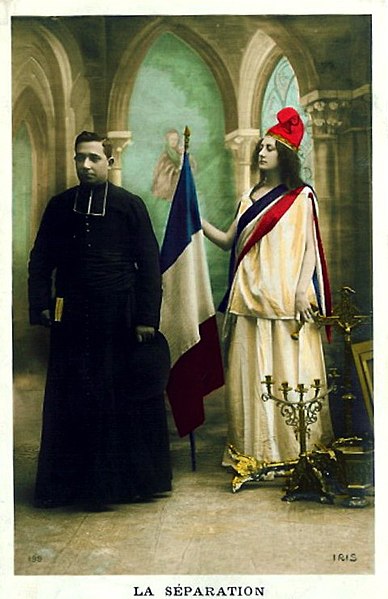
Source: wikimedia commons.
There is simply nothing new about France’s approach in dealing with religious extremism. So when Macron requests the Islamic leadership in France to accept a charter of republican values that prevents Islam from being used as a political movement, for example, this is in line with the Republic’s values and French tradition.
A final word
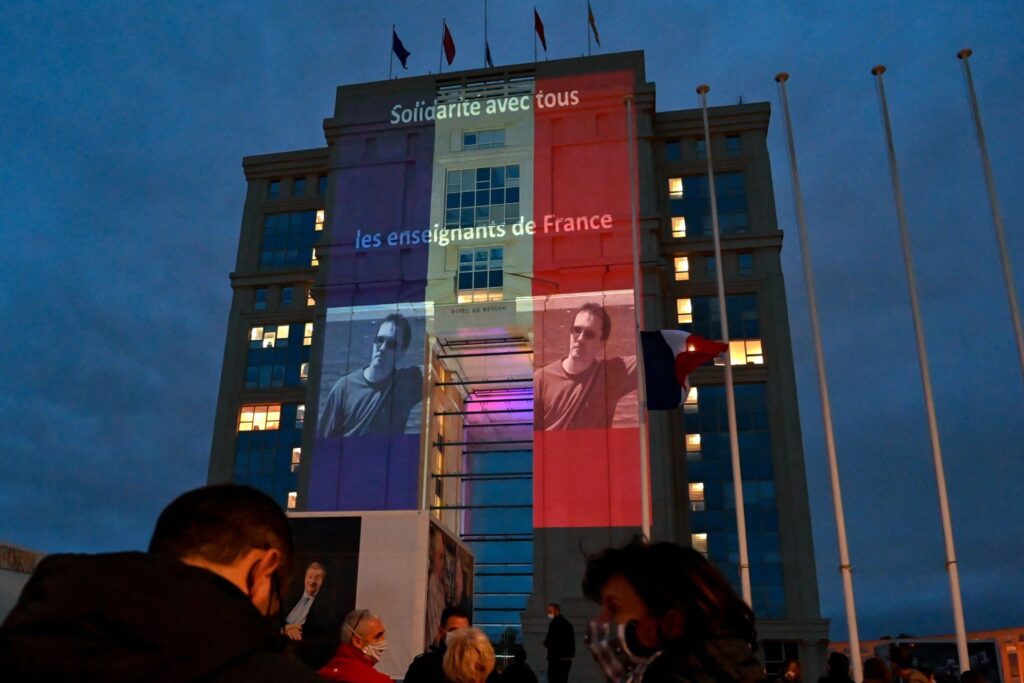
Source: Inna Shevchenko
The values of free society require constant reaffirmation against those of radical Islamism. A man who spent his teaching life departing lessons to young people about the value of knowledge, free expression and tolerance. The ideas of secularism, freedom of expression and free thought that Samuel Paty believed in must never be forgotten. Time may pass but those ideas will remain.
Je suis Samuel. Vive la laïcité.
Written and finalised by Anthony Avice Du Buisson (20/11/2020)
Edited by Sean Hastings (I thank you greatly, heval.)


![A symphony of violence in Afghanistan [Medium Article]](https://philosophyismagic.com/wp-content/uploads/2021/08/1_bVzly9TuDCRBZ9aIV5GqnQ-700x465.jpeg)
![The American-Australian alliance: ANZUS role in Australian History [JCU Essay]](https://philosophyismagic.com/wp-content/uploads/2022/05/Australia-US-Talisman-Saber-Exercises-Soldier-June-28-2017-700x465.webp)
